What if space shifted and time bent and we could meet ourselves as we’ll be twenty years from now? What if we could talk face-to-face with the people we were in the past, with the people we are in the parallel lifetimes, in alternate worlds? What would we tell them, and what would we ask? How would we change if we knew what waits beyond space and time?
Heavy? Don’t worry, I’ll lighten everything up. The last time I wrote was when I fell in love … … with ‘a book’ … … and that too of philosophy of Plato. And my friend Mols, he wrote recently to me, saying so. My falling in and out of love is a story that stretches far back in time. I fell in love couple of times and (luckily) fallen out of it till I found Gitanjali.
Anyway, flashback. I recall one incident on the time-line during which my heart would skip a beat on seeing her. She was (and is) somewhat of a whizz-kid.
The settings this time are shifted to the beautiful and serene Chandigarh. And that’s here that I fell in love for the second time (yes, it was my second crush). The city is beautiful, the climate – just right and she was absolutely stunning. What else is required? … … Richard Bach? … …
Did I hear someone mention a name that sounded like some classical music composer of olden times whom my friend Misha would very often impress upon me to listen? And what the hell was this Richard Bach doing in my private and personal love story? Well, he was there. No way out of it and no denying of it. Richard Bach. The lines in the beginning of this piece are by him.
I was studying in the local engineering school and she was there too. my junior (I hope everybody has guessed her by now). I fell in love with her, not at the first sight or first bite (as my good friend Mols would put it). But this happened over time, with some encouragement from Mols and other. she was his classmate. Slowly and steadily, the poison of love entered my thought my heart and into my head. “What a girl!”
Lets skip some details of how I got to know her and all the stuff I did to make her notice me which she did, we’ll go directly to one incident of me with her. So flash-forward a little.
I was sitting with her at her place, and we started talking about books (Oh my God! Save me.). I became an avid reader after that encounter, but at that time I would say I was … not a great reader and was likely not very comfortable discussing about them books. But anything for her.
“Do you read?”, she asked. What a question. Of course I read. I did my schooling in a British Convent School, and yes ma’am I do read.
“Yeah.”
“What do you prefer in fiction?”, now wait a minute, what is fiction … … my mind was running its horses; fiction … fiction … yes – stories.
“I prefer pulp.” In my mind I silently thanked Quentin Tarantino for making Pulp Fiction. If many of you have not guessed, I’m a movie-buff too.
“Do you? What all authors have you read?”
“I don’t read much. I prefer music and movies. But sometimes I read. I’ll tell you about the first novel I read (apart from my school). That was Sidney Sheldon’s If Tomorrow Comes. One of our family friends suggested it.”
“So you like Sheldon in pulp?” Hmmm. OK, so Sheldon writes pulp … …
“Yeah.”
“Sonu, I’ve read many authors and many styles. Now I would like to read philosophy and some more meaningful writings. Have you heard of Richard Bach.”
That was the first time in my life I heard about Richard Bach. Who was this Bach. Misha would often come to my hostel and put Johanne Sebastian Bach’s compositions at very high volume … boring the hell out of all of us. But same man cannot be a philosophical or meaningful writer and a great composer at the same time (or could be, you never know). Richard must be someone else.
“Yeah.” I was trying to be ecstatic, “Richard Bach. O my God! You should have told me; rather we should have talked about him earlier. Do you know my father reads a lot and Richard Bach is one of his favorite authors? Do you know that he has all of his famous books? I think 5 or 6 of them. But personally I would have skipped though 1 or 2, but his writing do not impress me much. Actually, I am more practical, so I prefer staying away from all that needs brains.” I was trying everything to win her.
Now that I have made an easy way out of all the discussions that I could have gotten myself into, I’ll tell you about my father. Well he reads a lot … he reads jokes, newspapers and his immense collection of advanced calculus books. If you would ask him, he would say who is Richard Bach. He is all logic and no philosophy. He doesn’t even know if a man with such a name ever existed.
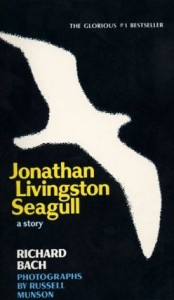 “O really? Do you have all the Bach? Well that’s wonderful. Have you read Jonathon Livingstone Seagull? Oh, I have read it long time back. It’s beautiful!”
“O really? Do you have all the Bach? Well that’s wonderful. Have you read Jonathon Livingstone Seagull? Oh, I have read it long time back. It’s beautiful!”
Jonathon Livingstone Seagull? Now what is this? Must be some seagull.
“Oh yeah, it’s different. Unlike many stories we read in our day to day lives.” This is the most appropriate answer. For those articulate people who are very good in discussion, I think they would understand that at this point I must give discussion a new turn.
“Yes Sonu, this small book really makes a difference in one’s life. After reading the book, one thing has become pretty clear in my mind, we are not here for mere earning our bread and butter. Life is all about exploring new heights, think about them till you reel under the pressure, dream about them and nurture them.”
God help me.
“I read it long time back. So I never perceived it like that. Would you like to read it? I can get it to you.” Let’s get out of this seagull business, I was thinking myself.
“I can get you the book. I have it in Amritsar.”
“Can you?” there was twinkle in the eye and a beautiful smile on the face. I could have done anything at that time.
“Sure. But its in Amritsar. Rather, I’ll get all his books, next time I’ll go to Amritsar. You can read them all.”
“Oh thank you, Sonu. That’s so nice of you”. Oh yes, I am nice.
And henceforth this man … … what’s his name – Richard Bach came to my life.
Well I stayed for some time and had some pakoras (fried fritters) with her while I was being given this dhobi patkaa about Richard Bach. Before taking leave, I promised her that next time I’ll go to Amritsar, I’ll get all of Bachs.
It was 4’o clock in the afternoon when I left her place and it was Thursday. On my way back, I stopped in Sector 17 at Capital Book Depot. My friend Ajay’s dad is the owner of that shop (he became my friend after this Bach). I went to him and asked for Bach … Richard Bach. He looked at me from head to toe (“Don’t I look like one of those Richard Bach guys?”).
He showed me to the shelf and I could see was a rack in front of me with all the Bach. He suggested Kahlil Gibran, if I was about to start with this kind of writings but I told him that I’d buy only Bach. He went away and I counted that six of the titles of this author were lying there. I brought all the six of them on the counter and asked Ajay for the price of all. He said they’d all cost me around Rs 800. And I had none in my pocket. I told him that I have no money with me but I would like to buy all of these tomorrow and he can keep a set aside for me. He said that would be no problem at all and that I can come anytime to buy them.
Now to arrange 800 Rupees. In the evening, my parents called (they used to call me everyday, even today they call me almost everyday) and I told them that I was out of money and needed to pay some hostel dues and I also need to buy few books. My father never questioned me about money. He said that I can collect the money from the driver of a local bus service (Maharaja Travels) that runs between Amritsar and Chandigarh. Wonderful. The very next day around half past 10, I got the money. Two thousand rupees.
Hit Capital Book Depot. Ajay recognized me, I think it was easy for him since I was wearing the same clothes that I was wearing the day before. He was surprised that I have come back for Bach. Many people do not turn out after they have asked the bookseller to keep some books aside for them. I bought the books, made the payments. That’s when Ajay and me came to know each other. I have bought many books after that from him.
Over the weekend, I read Jonathan Livingston Seagull, One, There’s No Such Place As Far Away. So now I knew who is Richard Bach. Then I started with Illusions: The Adventures of a Reluctant Messiah and then later after 3 days I started with Biplane. Well I was through with five of his books. And then the one that remained was The Bridge Across Forever: A Love Story. On Friday Misha came. Misha’s eyes twinkled at the sight of these books. He saw all the books lying scattered in my room. His expression was of a clown who gets struck by a baseball (or cricket) bat and passes out with the smug happy expression on his face.
“Sardarji, theek thaak ho (surdy, are you alright)?” was his instant question. After much dodging around, I ended up telling him the truth. Now it was easy to talk to him. Needless to say, Misha had read almost all the books. We had a nice discussion.
“After reading the book, one thing has become pretty clear in my mind. we are not here for mere earning our bread and butter. Life is all about exploring new heights, think about them till you reel under the pressure, dream about them and nurture them.” I repeated what she had said to me.
Misha had his own ideas, “ It also tells us that to follow freely the promptings of heart, one must not conceal from oneself that life is coarse and ruthless in its own wayward course. The book is a bid to rekindle the sleeping Jonathan Livingston Seagull in all of us. Through the seagull, the author explains this to us and takes us to the finer nuances of life. What does a man need? We always think of common things – bread, butter and a bed to sleep on. After reading the book, you will see that there is more to life than those. You don’t have to simply live for them. How about bringing a pose of roses for your beloved from the stiff cliffs of Alpine, when roses are out of season. This book will teach and prompt you to do that.”
I was impressed. Misha, the great. Now I can talk about this author.
“This book packs into a few short pages a plethora of universal truths. It is a simply written tale of the nature of purpose and of perfection. It’s a story of freedom and thought and immortality that ought to inspire even the most stubborn pessimists and nay-sayers.”, I added as now I understood it better.
Misha made himself comfortable in my room (as he always used to do). Many ideas were exchanged over lunch and over evening tea. Misha wore the same smug expression and was also enjoying every moment of it.
He started another thread of discussion, “There’s No Such Place as Far Away, now that is an amazing piece. When she was about to turn five, a little girl named Rae Hansen invited Richard Bach to her birthday party. Though deserts, storms, mountains, and a thousand miles separated them, Rae was confident that her friend would appear. There’s No Such Place As Far Away chronicles the exhilarating spiritual journey that delivered Rae’s anxiously awaited guest to her side on that special day – and tells of the powerful and enduring gift that would keep him forever close to her heart. Richard Bach’s inspiring, now – classic tale is a profound reminder that miles cannot truly separate us from friends … that those we love are always with us – every moment of the infinite celebration we call life.”
I was getting ideas too. as I said, “This is one of those rare books that has a timeless message and a simple beauty which belie its brevity. You can read this book in ten minutes. And, you can re-read it a hundred times and feel differently about it each time. Consider it the abridged Jonathon Livingston Seagull or Illusions, but don’t think of it as leaving out anything of importance. I particularly like this book because, in a few minutes, it helps me remember some of the simple truths of life – that time and space cannot separate us from the one’s we love. Besides that, it has some fantastic water-color illustrations which I found enjoyable to simply view.”
“Yes, exactly. Very true, very true”, Misha said sipping his tea.
I wanted to explore more. “And Illusions: The Adventures of a Reluctant Messiah. In the cloud-washed airspace between the cornfields of Illinois and blue infinity, a man puts his faith in the propeller of his biplane. For disillusioned writer and itinerant barnstormer Richard Bach, belief is as real as a full tank of gas and sparks firing in the cylinders…until he meets Donald Shimoda–former mechanic and self-described messiah who can make wrenches fly and Richard’s imagination soar…. In Illusions, the unforgettable follow-up to his Richard Bach takes to the air to discover the ageless truths that give our souls wings: that people don’t need airplanes to soar…that even the darkest clouds have meaning once we lift ourselves above them… and that messiahs can be found in the unlikeliest places–like hay fields, one-traffic-light midwestern towns, and most of all, deep within ourselves.”
Misha had something to say too. “The best part is the thought-provoking dialogue between a guy named Richard and a real Messiah. This story will change you if it ever get into your head.”
Misha left for home later in the evening. That night, I finished Biplane. It was first time in my life I felt there is more than Sidney Sheldon to life. There is Richard Bach. Oh what a writer. I was doing it all because of her. Did you guys think I forgot her, talking about Misha and Richard Bach? Of course not.
And all these days, I must tell you, I was meeting her everyday and we talked and chatted a bit – but not Richard Bach.
During the next weekend I finished with The Bridge Across Forever: A Love Story. Bach wrote of a man haunted by the ghost of a wise, mystical, lovely lady who lived just around the corner in time. This story tells of his quest to find her. His search for his dreamed-of soulmate, his detour into wealth and success, and his ultimate meeting with the woman with whom he has found love and enchantment. If you’ve ever felt alone in a world of strangers, missing someone you’ve never met, you’ll find a message from your love in this book. Isn’t it amazing how our life is so in our faces yet we are too blind to see? This reconnects to the hummings from my inner self and not the moaning of the outside world. When we are finally at one, awake, and aware who knows maybe we can all have it. We get the answers all the time but we push them away for whatever reason. An inspiration to love beyond this life.
Well, I had read it all and was ready to talk to anyone about this author. All this to get the attention of that someone special. Over the next weekend, I went to Amritsar to meet my parents. Spent some time with them. Met couple of friends. Missed her. Traveled back to Chandigarh.
On Monday, I met her. After daily greetings, I told her that I had brought the books she wanted. She was happy to know that and seeing her happy, I was happy too. That evening I took the books to her place and gave it to her. And even suggested the one’s she should read first and the one’s that are to be savored last.
 She read them in about 10-12 days time. I had continued to meet her wherever I could and even discussed the books individully with her (thanks to Misha). She was happy to know that I had read them all. She was impressed by my versions and understanding of these writings (I think). Afterwards, she suggested many more books to me and many more she demanded (the one’s she wanted to read and Ajay happily supplied me with them (of course not free).
She read them in about 10-12 days time. I had continued to meet her wherever I could and even discussed the books individully with her (thanks to Misha). She was happy to know that I had read them all. She was impressed by my versions and understanding of these writings (I think). Afterwards, she suggested many more books to me and many more she demanded (the one’s she wanted to read and Ajay happily supplied me with them (of course not free).
And that how I came to know about Richard Bach. As I write this, I see that set of books in front of me. As I look back, sometimes I think I was making a fool of myself, and at other times, I think that she has to be thanked at some point for making me a more ferocious reader. I have read hundreds of books since, needless to say even more heavier than Richard Bach. But these books have a special place in the time line of my life. It was fate, destiny or her, but in the end, she did make a difference in my life, and my reading.
Wherever she is in the world, I hope she is reading some new book, or maybe she is reading the ‘life’ itself.
February 2008
Copyright JPS Nagi
Epilogue (August 2010): Although my original Richard Bach books are scattered everywhere, my new set of Richard Bach still sits on my bookshelf, as seen in one of the images above.
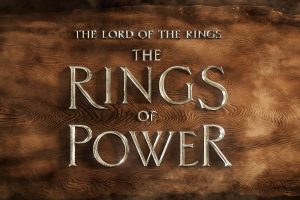 ial from the Tolkien Estate, and the histories (from The Lord of the Rings appendices) do not always tell a story. In order to tell a cohesive story, there are some original characters introduced, timeline compressions, and other adjustments made for the medium of television. In my opinion, I am glad I am living in an age where an attempt is made to bring the world to this medium to bring new people to the journey through the Middle-Earth.
ial from the Tolkien Estate, and the histories (from The Lord of the Rings appendices) do not always tell a story. In order to tell a cohesive story, there are some original characters introduced, timeline compressions, and other adjustments made for the medium of television. In my opinion, I am glad I am living in an age where an attempt is made to bring the world to this medium to bring new people to the journey through the Middle-Earth.![Redshirts_John_Scalzi1[1]](http://jpsnagi.com/wp-content/uploads/2012/07/Redshirts_John_Scalzi11-200x300.png)
![Weeks_Black-Prism-MM[1]](http://jpsnagi.com/wp-content/uploads/2012/01/Weeks_Black-Prism-MM1-185x300.jpg)
![lbt0101[1]](http://jpsnagi.com/wp-content/uploads/2012/01/lbt01011-300x300.jpg)
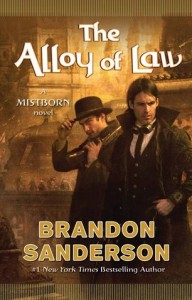
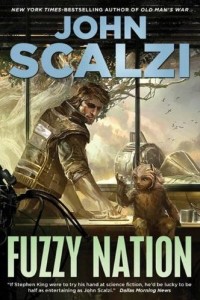
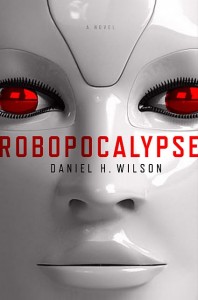
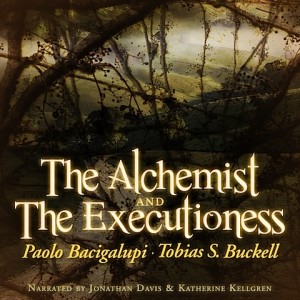
![the-alchemist[1]](http://jpsnagi.com/wp-content/uploads/2011/06/the-alchemist1-204x300.jpg)
![the-executioness[2]](http://jpsnagi.com/wp-content/uploads/2011/06/the-executioness2-204x300.jpg)

